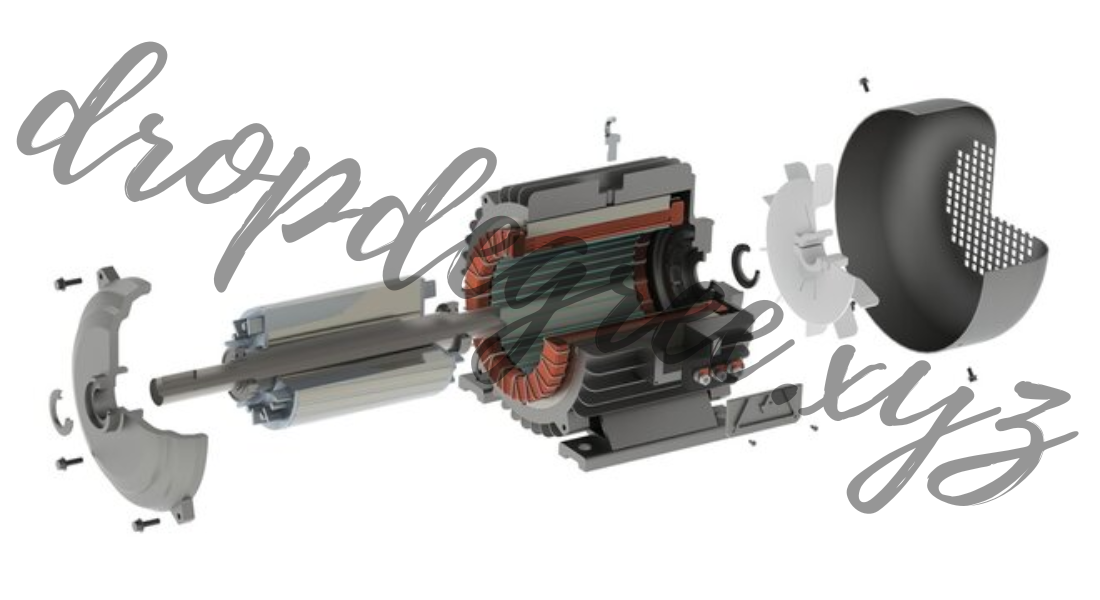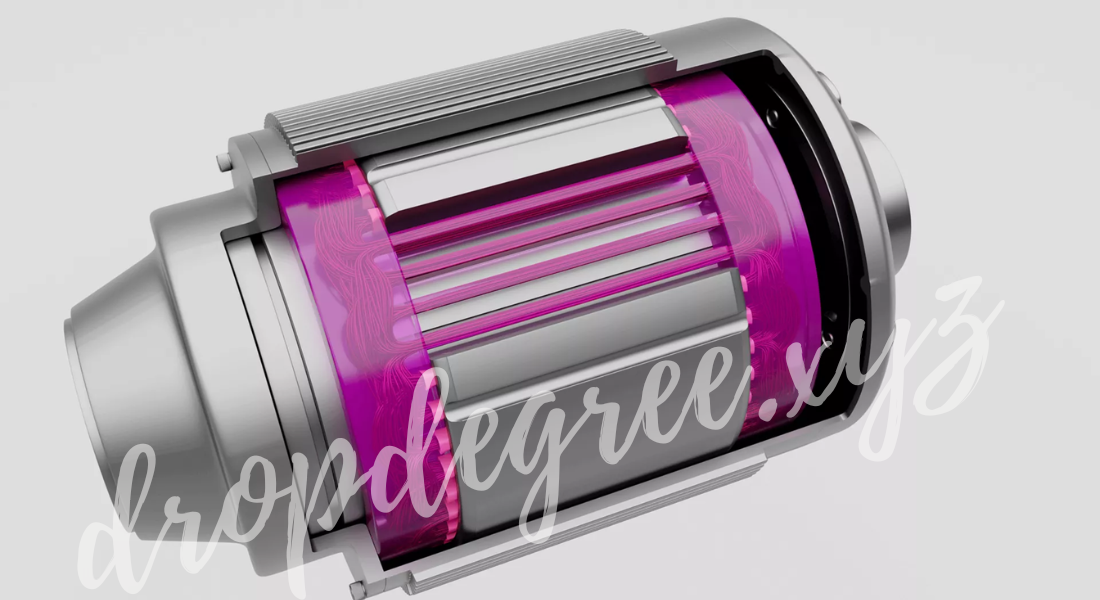The Evolution of Electric Motor Solutions
Electric motors have been pivotal in transforming how we power our world. From simple appliances to complex industrial machines, electric motors drive progress and innovation across various sectors. In recent years, the demand for efficient and sustainable electric motor solutions has soared, driven by both consumer needs and environmental concerns. As we look to the future, companies are developing electric motor technologies that are more advanced, reliable, and sustainable.
Electric motor solutions are evolving rapidly, with new technologies emerging to improve performance and reduce environmental impact. These innovations include high-efficiency motors, low-maintenance designs, and smart technology integration. Each advancement contributes to the broader goal of energy efficiency, which is critical in today’s energy-conscious world.
Why Efficient Electric Motors Matter
One of the most significant aspects of electric motor solutions is efficiency. An efficient motor not only reduces energy consumption but also decreases operational costs, making it an appealing choice for businesses. In industries where motors run continuously, even a slight improvement in efficiency can lead to substantial cost savings and a reduced carbon footprint.
Efficient electric motors help businesses achieve energy targets while saving on expenses. This is particularly important in manufacturing, where energy-intensive processes benefit greatly from optimized motor performance. The integration of energy-efficient motors is becoming standard practice in industries striving for sustainability.
Types of Electric Motor Solutions
There are various types of electric motors, each designed for specific applications. Understanding these types is essential for selecting the right motor solution.
- AC Motors
AC motors are widely used in industrial applications due to their durability and ease of use. They are ideal for high-speed, high-torque applications, such as pumps, fans, and conveyor systems. With advancements in variable frequency drives (VFDs), AC motors can now offer better control over speed and efficiency. - DC Motors
DC motors are known for their high starting torque and precise speed control. They are commonly used in applications requiring low-speed, high-torque performance, like electric vehicles and cranes. Recent innovations in DC motor technology have improved efficiency and durability, making them a reliable choice for many industries. - Brushless DC Motors (BLDC)
Brushless DC motors have become popular in recent years due to their low maintenance and high efficiency. They are commonly used in electronics, robotics, and automotive applications. These motors offer higher efficiency and longer lifespans than traditional brushed DC motors. - Synchronous Motors
Synchronous motors run at a constant speed, which is essential for certain applications requiring precise timing, such as clocks and conveyor systems. They offer excellent efficiency at fixed speeds, making them suitable for specialized industrial processes. - Stepper Motors
Stepper motors are often used in applications requiring precise movement and positioning, such as 3D printers and CNC machines. They provide exact control over movement, making them ideal for robotics and other precision-driven applications.
Each type of electric motor has unique advantages, and choosing the right motor solution depends on specific application needs, such as speed, torque, and efficiency.
Key Innovations in Electric Motor Solutions
Recent years have seen remarkable innovations in electric motor technology. Here are some of the most impactful developments:
1. High-Efficiency Motors
High-efficiency motors reduce energy consumption and improve performance. These motors often use advanced materials and designs to minimize energy loss, helping industries lower their operational costs. The use of permanent magnet motors, for instance, has led to increased efficiency in various applications.
2. Smart Motors and IoT Integration
The Internet of Things (IoT) is revolutionizing electric motor solutions by allowing real-time monitoring and predictive maintenance. Smart motors can alert operators of any performance issues, reducing downtime and improving productivity. By collecting data, these motors help optimize usage and identify areas for further efficiency improvements.
3. Compact and Lightweight Designs
Manufacturers are now producing motors that are both compact and lightweight. This is particularly beneficial in applications where space and weight are critical, such as electric vehicles. These designs not only improve energy efficiency but also allow for more flexible applications in smaller devices.
4. Sustainable Materials and Eco-Friendly Production
Sustainability is becoming a key focus in electric motor solutions. Using eco-friendly materials and implementing sustainable manufacturing processes, companies are creating motors that have a smaller environmental impact. For instance, reducing the use of rare earth metals and recycling materials contributes to more sustainable production.
Benefits of Adopting Modern Electric Motor Solutions
Adopting modern electric motor solutions offers several benefits, not only for businesses but also for the environment. Some of these benefits include:
- Cost Savings
By using energy-efficient motors, companies can significantly reduce their electricity bills. High-efficiency motors reduce energy consumption, which translates to lower operational costs over time. - Reduced Environmental Impact
Energy-efficient electric motors produce fewer emissions, contributing to a cleaner environment. By reducing energy waste, businesses can help mitigate climate change and promote sustainability. - Increased Productivity
Electric motors with IoT integration allow for better monitoring and control. This improves productivity by minimizing downtime and ensuring optimal performance. - Enhanced Reliability
Modern electric motors are designed to be more durable and reliable, which is essential for industrial applications where downtime can be costly. These motors require less maintenance and offer consistent performance over longer periods. - Regulatory Compliance
Many governments and organizations are implementing stricter energy efficiency regulations. Using high-efficiency electric motors can help companies stay compliant with these regulations and avoid potential fines.

Challenges in Electric Motor Development
While electric motor solutions offer numerous advantages, there are still challenges to overcome. One of the main challenges is the high cost associated with new technologies. Developing high-efficiency, sustainable motors requires significant investment, which can be a barrier for smaller companies.
Another challenge is the limited availability of materials, such as rare earth metals, used in the production of advanced electric motors. This has led to a push for alternative materials and recycling processes to reduce dependency on these scarce resources.
Despite these challenges, the future of electric motor solutions looks promising. As technology continues to advance, electric motors will become more efficient, affordable, and accessible.
The Future of Electric Motor Solutions
Looking ahead, the electric motor industry is set to grow rapidly, driven by the increasing demand for energy-efficient solutions. Innovations in smart technology, sustainable materials, and design will continue to shape the future of electric motors.
Electric vehicles (EVs) are one area where electric motor solutions are expected to thrive. With governments worldwide promoting the use of EVs to reduce greenhouse gas emissions, the demand for efficient, powerful electric motors is at an all-time high. Battery technology advancements, combined with motor innovations, will likely result in lighter, faster, and more efficient EVs.
In addition, renewable energy sources like wind and solar power rely heavily on electric motor technology for energy generation and distribution. The development of electric motors that can efficiently harness and distribute renewable energy will play a crucial role in achieving global sustainability goals.
Conclusion
Electric motor solutions are at the forefront of energy efficiency and sustainability. With advancements in smart technology, high-efficiency designs, and eco-friendly production, these motors are becoming essential across multiple industries. By investing in modern electric motor solutions, companies can reduce costs, increase productivity, and contribute to a cleaner environment.
As we move toward a future focused on renewable energy and environmental responsibility, the role of electric motors will only grow. With continued innovation, electric motor solutions will provide the power needed for a sustainable, efficient, and advanced world.
